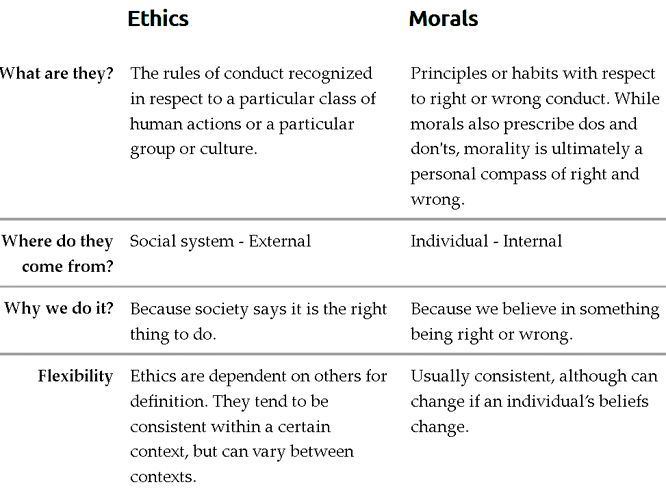Kirata
Posts: 15477
Joined: 2/11/2006
From: USA
Status: offline

|
quote:
ORIGINAL: PeonForHerquote:
ORIGINAL: Kirataquote:
ORIGINAL: Real0ne
there is a distinct (though subtle) difference between social code and morals... exercising your religion is the ability to choose right and wrong based on your individual 'morals'/belief system and act or refrain from acting accordingly.
Despite that morality and ethics are often and widely used interchangeably, I would agree that differing connotations have become attached to those terms. What is ethical can reflect culture, custom, and law, while what is moral reflects a fundamental principle that transcends culture, custom, and law. Or in other words, what is considered ethical can be local to a time, place, or group, but what is moral transcends them. Unfortunately for your thesis, if we rely on that distinction then the essence of what is moral lies precisely in the fact that it is not simply a matter of individual belief.
I've heard a distinction made between 'ethics' and 'morals' more than a few times, with each distinction being different to the others. One distinction, for instance, goes 'ethics are abstracted and rationalised, while morals involve feelings'. But the bottom line for me is that there's always a sense of the one being better than the other - depending, it's always seemed to me, on which of the two words the writer likes the sound of most.
Well, I tried to stay as close as possible to the connotations embedded in our modern definitions of those terms. But yes, I've seen different ones, including the example you provided, and I agree that they seem mainly to depend on which word the writer likes the sound of most. Not to put too fine a point on it, I think many of those differing descriptions of the distinction are crafted to reflect the writer's preferences or prejudices.
As a case in point, the inventor of the table that R0 posted extracts, "rules of conduct recognized in respect to a particular class of human actions or a particular group, culture, etc.," from the definition of ethics while ignoring, "moral principles, as of an individual." Similarly under Morals, he ignores the transpersonal quality implicit in "fundamental principles" in order to pull merely individual "principles and habits" out of his hat.
TAGS: Lies of Omission, Magic Acts
http://dictionary.reference.com/browse/ethics
http://dictionary.reference.com/browse/morals
K.
< Message edited by Kirata -- 11/9/2015 12:34:55 PM >
|

 Profile
Profile





 New Messages
New Messages No New Messages
No New Messages Hot Topic w/ New Messages
Hot Topic w/ New Messages Hot Topic w/o New Messages
Hot Topic w/o New Messages Locked w/ New Messages
Locked w/ New Messages Locked w/o New Messages
Locked w/o New Messages Post New Thread
Post New Thread